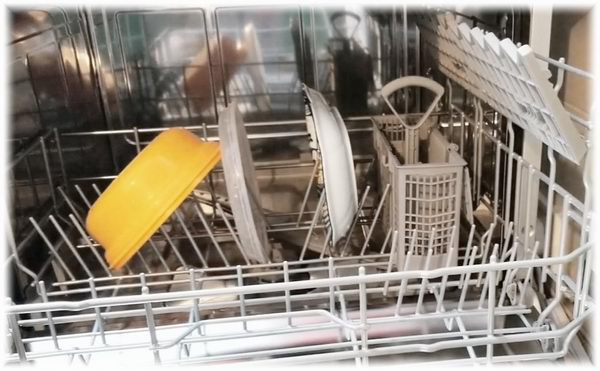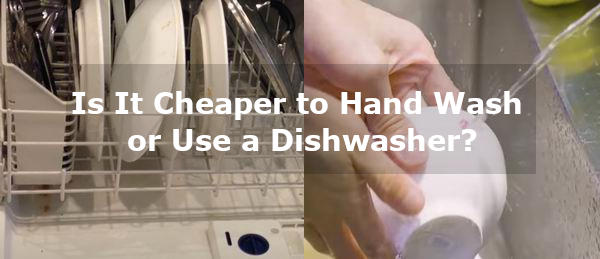
In spring, anticipation of positive changes is inspiring. A small party or family gathering would be possible now. Are you going to meet a grip of close friends? Receiving guests at home might be challenging. Let’s compare dishwasher vs hand washing: which cleans better? Being a house-proud person, you may like cooking. Laying the table and decorating it is pleasant, but demanding. This stellar challenge is enjoyable. Washing dishes might become wearisome, but it should not be a heavy or gnarly household chore. A modern, powerful dishwasher is a clutch! Handling a huge load of dirty dishes saves your precious time. Which option is safer and healthier? Let’s delve into details.
Are Dishwashers Better than Hand Washing?
Are you looking forward to positive changes? It seems that time to go out is coming soon! In April, mild sunny weather benefits California. I hope you don’t get butthurt due to cold nights and morning fog. San Francisco is reopening! Issuing official directives, local authorities allow some kind of gatherings.

Now, you can enjoy cherry blossoms or have a tiny barbecue. Hanging out with up to 25 friends and relatives is possible. Only 6 people from 3 households may be eating and drinking together. Your best dishwasher for wine glasses handles this pile of dishes easily!
Its place-setting capacity is enough to meet small gathering needs. Sanitizing measures are becoming critical nowadays. Thus, washing your glasses and plates by hand is not legit. It’s:
- Laborious.
- Time-consuming.
- Wasteful.
- Not skin-friendly.
- Less sanitary than dishwashing.
What is the most hygienic way to wash dishes? Handwashing may damage your sensitive skin. And it still doesn’t ensure absolute cleanliness. Besides, warm water doesn’t kill all germs, bacteria, and viruses.
Do Dishwashers Work Better with Dirty Dishes?
Regular handwashing is an essential hygienic practice. And according to CDC, it lets you remove bacteria and microbes. Does dishwashing liquid kill germs? High water temperatures make food-borne bacteria die. They enable sanitation of all smooth, water-resistant kitchenware surfaces.

Human skin is delicate. Dishware and utensils are less demanding. Your best dishwasher with hard food disposer cleans them easily. It eliminates necessity of pre-rinsing. What about the other factors? Let’s compare them with those of washing dishes by hand.
| Parameter | Dishwashing | Washing by Hand |
|---|---|---|
| Water Temperature, °F | 120-140 | 100-110 |
| Cycle Duration, min, | 15-125 | 30-45 |
| Water Consumption, gal. | 1.14-3.30 | 4-5 |
| Energy Consumption, kW/h | 0.03-0.49 | - |
| Yearly Cost, USD | 40 | 33 |
Quite naturally, dishwasher quick wash vs normal wash is faster. It’s energy-efficient and time-saving. But even an intensive cycle won’t become wallet-busting. Running every day, it consumes a grip of energy. But it’s not heavy. Estimate the cost of detergents, liquids and waste of water. Usage of water heaters and your skin health doesn’t count.
Do Dishwashers Sanitize Dishes?
In case of your skin surface, soap helps. But the time of exposure should be not less than 40-60 seconds. Alcohol-based sanitizers would be essential. They reduce the number of microbes on your skin. You might need to rub your hands or use a highly effective antiseptic aid.
Comparing dishwasher vs hand washing, hygiene matters. Washing your glasses and plates by hand, you are to:
- use a heater to get warm water;
- scrape the surface, eliminating food particles;
- soak heavily soiled cooking pots in hot water;
- wash dishes with a sponge and dishwashing liquid;
- rinse your plates with clean tap water.
Delicate, soft and sensitive items require washing by hand. For some people, it might be soothing and family-bonding. Air dry vs heat dry dishwasher use is sparing and eco-friendly. Because, it lasts longer, being easier. Wiping the surfaces with a towel is not hygienic. Water and air temperature are to reach 140 degrees. Infant feeding items require careful sanitation. You’ll have to boil them or put them in an efficient dishwasher.
Is It Cheaper to Hand Wash or Use a Dishwasher?
Most people take washing dishes by hand as a gnarly, detested chore. If you are in a hurry, it might increase anxiety. Dishwashing and warm water may irritate your sensitive skin. It withstands water temperature up to 100-110° F. So, washing by hand doesn’t remove all bacteria and viruses.

Scrubbing is exhausting. Sanitizing using chemicals like chlorine bleach is not safe. Their smells are toxic. Dishwasher vs hand washing kills germs more efficiently. Because, proper sanitation works when:
- water temperature reaches 130-170 degrees Fahrenheit;
- you choose normal or intense cycles;
- they finish with heated final rinses;
- steaming features are available.
Powerful dishwashers that include sanitizing cycles are beneficial. They kill 99.999% of bacteria on the dishware surface. But it doesn’t spendy. So, How much hot water does a dishwasher use? Stellar, highly-efficient appliance doesn’t waste it. It cuts your utility bills. Units that meet Energy Star requirements are mental. They are powerful and cost-efficient.
Bottom Line
Do you enjoy washing dishes manually? I would doubt it, for real. The hope that it saves you money is unworldly. Only your delicate items may require hand washing. Otherwise, it’s time-consuming and not efficient. Modern, powerful dishwashers do the job skillfully. They save water and electricity. If you have full loads of kitchenware every day, it makes the difference. Additionally, health benefits are priceless nowadays. Natural sanitation, using only hot water or steam is safe and reliable. Final rinse and heated dry options eliminate virtually all bacteria. It prevents spread of infection, letting you keep healthy and stay up.
